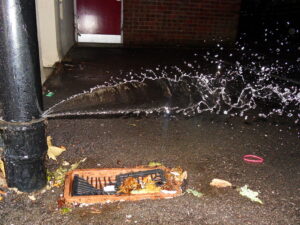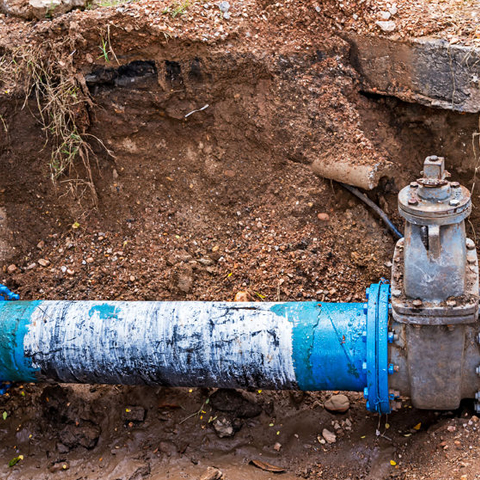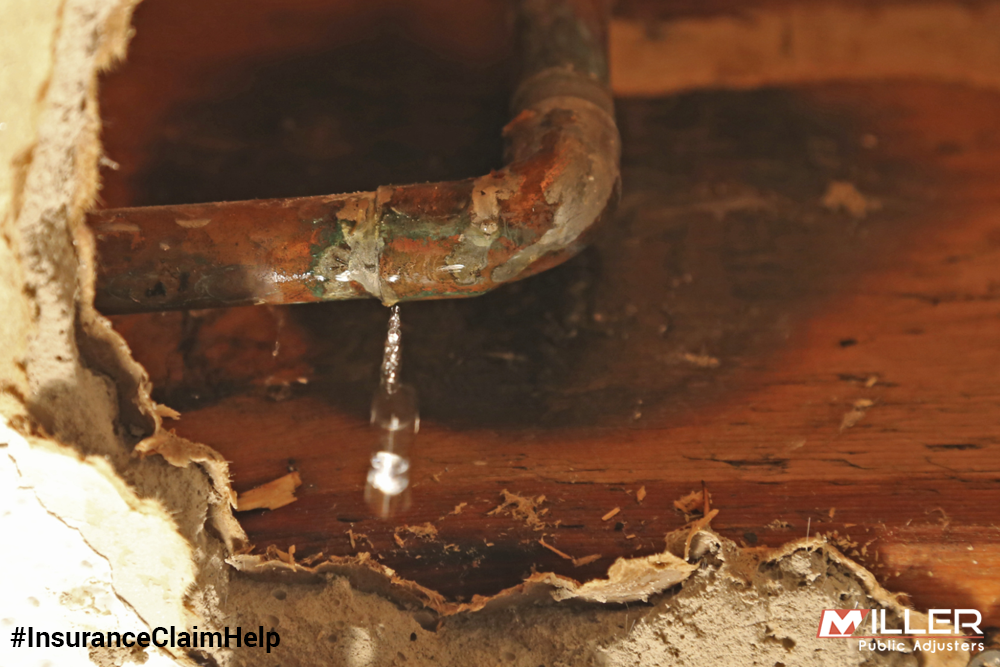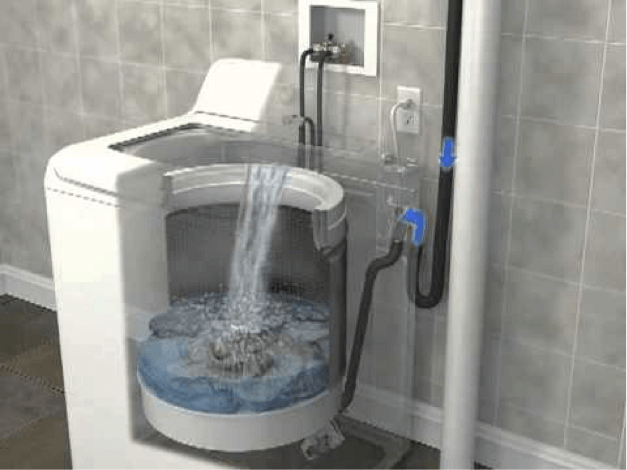Are you looking for selective information about What Do I Do If I Have A Burst Pipe In My Home??
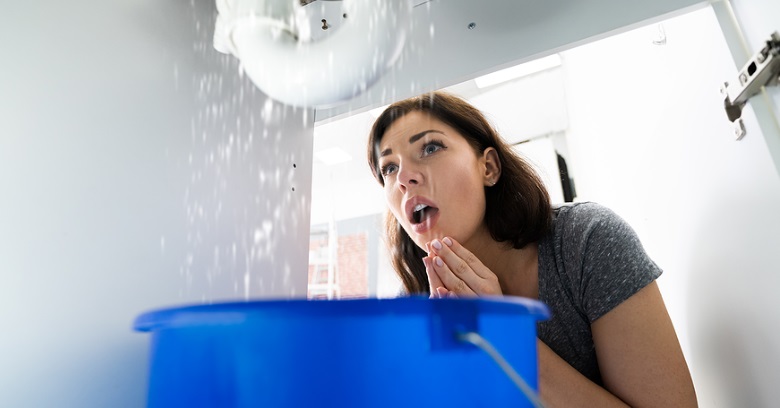
You need to understand exactly how to shut off your main water line if you struggle with a ruptured pipe. Don't wait on a plumbing emergency prior to figuring out exactly how to get this done. Besides, aside from emergency leakages, you will certainly require to switch off your primary water shutoff for plumbing fixings or if you leave for a long trip. Learn more regarding it in this miniature guide.
Why Must You Shut the Main Line Off?
Acquainting yourself with exactly how your mainline turns on and off can conserve you during an emergency. For instance, when a pipeline instantly bursts in your residence, you'll be besieged with panic. Thus, you can easily close the valve off and also stop much more damages if you recognize what to do. Furthermore, shutting this off guarantees you do not need to deal with a sudden flood in your home.
On top of that, shutting and opening up the valves periodically guarantees they don't get stuck. It is additionally the most effective time for you to inspect for corrosion or other damaged connections. Moreover, make it a point to inform other relative on what to do. This makes regular upkeep and handling emergencies a lot easier. You can possibly conserve on your own hundreds of dollars in repairs.
Where is This Key Valve Found?
The main water line supply can vary, so you may need to discover time to determine where it is. Regrettably, when your residence is getting drenched due to a burst pipeline, you do not have the deluxe of time during an emergency. Thus, you must get ready for this plumbing dilemma by discovering where the shutoff is located.
This shutoff valve might look like a sphere shutoff (with a lever-type manage) or a gate shutoff (with a circle spigot). Placement relies on the age of your residence and also the climate in your location. Check the adhering to usual places:
- Interior of Residence: In chillier climates, the city supply pipelines face your home. Examine common utility locations like your cellar, laundry room, or garage. A most likely location is near the water heater. In the cellar, this valve will go to your eye degree. On the other main floors, you might need to bend down to find it.
- Outdoors on the Outside Wall: The primary shutoff is outside the home in tropical environments where they don't experience wintertime. It is frequently connected to an outside wall surface. Check for it near an outside tap.
- Outdoors by the Road: If you can not locate the shutoff anywhere else, it is time to inspect your street. It could be outdoors alongside your water meter. It could be listed below the access panel near the ground on your street. You may need a meter key that's offered in hardware stores to remove the panel cover. You can locate 2 valves, one for city use and one for your residence. Ensure you shut down the best one. As well as you will certainly recognize that you did when none of the taps in your home launch freshwater.
Must This Always Be Shut Off?
Besides emergency situations, fixings, or long trips, you may not need to shut off the major shutoff. For instance, so one fixture has concerns, you can turn off the branch shutoff in that area. By doing this, you can still make use of water in various other parts of your home. For ideal results, call a reputable plumber for emergency situations.
Water Pipe Burst: 6 Steps You Need to Take Now
Why Did My Water Pipe Burst?
There are many reasons why a water pipe fails. While each situation is different, there are a few common causes of water pipe bursts, from weather to external damage.
Let’s look at five culprits, and the steps to take to prevent issues.
Freezing Temperatures
If you live in a climate where temperatures drop below freezing, be aware of the heightened potential for pipe problems.
When temperatures drop, the water inside your pipes may turn to ice. As more water trickles in, the frozen area grows… and the frozen water expands.
Over time, the pressure may be too much. Bonds in the pipe weaken and cracks form. When the ice finally melts, the temperature change can shatter both the ice and the surrounding pipe. If the pressure is strong enough, the pipe bursts.
To keep pipes from freezing and bursting, shut off the water to outdoor spigots and drain the remaining water from pipes. Insulate indoor pipes to keep them warm.
If pipes are on an outer wall, open cabinets if possible. When it’s freezing outside, leave at least one faucet slowly dripping to keep the water moving inside the pipes at all times.
If the temperature gets well below freezing and even into the negatives, you may want to leave a steady stream of water flowing. A water bill that’s a little bit higher will likely be much cheaper than flooding repairs.
Rust and Corrosion
Corrosion is another common cause of burst pipes. Rust and corrosion build up inside pipes, especially in older homes and in areas where water has a high iron content.
Over time, the corrosion weakens pipes, leading to an increased chance of a burst. Steel pipes are especially susceptible to rust.
To prevent rust and corrosion, replace steel pipes with plastic or copper. These types of pipes tend to resist corrosion longer.
Tree Roots
When trees around your home grow taller, their roots grow downward and outward, too. Sometimes, roots come in contact with water pipes.
In a battle between tree roots and pipes, the roots usually win. As roots continue to grow and press against the pipes, the pipes crack, leading to leaks.
To keep roots from encroaching, be sure to plant trees far from your water pipes. Choose slow-growing tree varieties that have small root balls.
If trees are already encroaching, you may try to add a physical or chemical barrier to prevent roots from accessing pipes.
Movement and Water Pressure
Sometimes, the soil around pipes shifts or moves, causing pipes to lose stability and crack. Movement may occur due to nearby construction, temperature fluctuations, or repairs made to other parts of the plumbing system.
High water pressure may also cause pipes to move. If the pressure reaches a PSI above 60, pipes may simply burst from the strain.
Construction is a major cause of pipe movement. Request that dirt from nearby construction isn’t dumped on top of your pipe system to prevent movement and increase pressure.
Clogs
You already know that clogs can back up your sink and shower drains. But did you know that they can lead to burst pipes, too? A clog can cause water pressure to build up behind it, especially if it’s deep within the system.
That’s why it’s important to be mindful of what gets poured down the drain, goes into the garbage disposal, and flushed down the toilet. Limiting drains to water and approved materials can help prevent deep clogs.
Signs of a Busted Water Pipe
How do you know if you have a burst water pipe? The most obvious sign is finding puddles of water in your home.
However, puddles can come from leaks, rather than bursts. Here’s how to tell the difference.
If a puddle gets bigger when you turn the water on, that indicates a burst pipe. Because bursts allow water to move through the walls, you may notice water puddling directly under the burst pipe, and also pooling in other places.
For instance, if the pipe leading to the bathroom sink bursts, you may see puddles under the sink and on the floor near the tub and toilet. In contrast, leaks tend to pool in just one place.
Another sign of a burst pipe? Water pressure issues. Burst pipes generally lead to low water pressure, as the cracked area affects how much water moves through the pipes.
Stains may appear on the walls and floors near a busted water pipe. If bursts are caused by rust, you may notice that water has a strange, metallic odor and reddish discoloration. The presence of mold or mildew may also indicate a burst water pipe.
First Steps to Take When a Water Pipe Bursts
- Locate your main water valve and shut it down to prevent any more water from flowing into your walls and home. Your main shut-off may be in your basement, crawl space, or by your hot water heater. (If you think water has come in contact with electrical sockets, wiring, or a fuse box, turn your electricity off, too).
- Drain your faucets. Starting with the cold tap, drain the remaining water out of the pipes, then flush every toilet in the house a few times. Next, turn off your boiler or water heater and drain the hot tap. This will relieve water pressure.
- Call the plumber once the water is turned off and pressure is relieved. Getting professional help quickly is key.
- Try to find the burst pipe. If you can find the leak, place a bucket under it to catch the water. Look for bulges in the ceiling or other signs of water damage.
- Document the damage. You may need to make an insurance claim, so document thoroughly. Take close-up photos of damaged items and areas, and of the pipes themselves. Use rulers in pictures to show water levels. Take photos from different angles; the more documentation you have, the better. You may even want to take a video of the leak before you shut off the water main.
- Clean up the mess. If water sits too long, microbes will grow, leading to harmful mold and mildew. This can lead to long-term damage, so get your home dry as soon as possible. You may need to call in a professional drying company, as simply opening the windows and turning on fans may not be enough.

I hope you enjoyed reading our post about What Do I Do If I Have A Burst Pipe In My Home?. Thanks so much for spending some time to read our content. Do you know about somebody else who is fascinated by the subject? Why not promote it. Kudos for your time. Don't forget to visit our blog back soon.
Need quality service?
